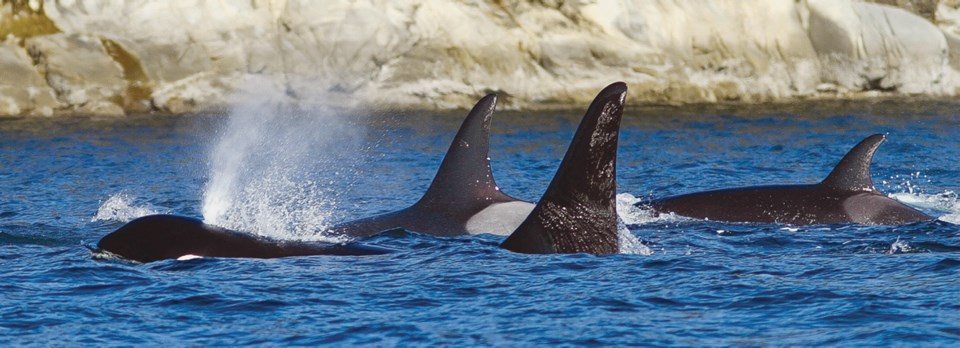A commentary from the B.C. Chamber of Commerce and The Thriving Orcas, Thriving Communities Coalition.
British Columbia’s coastal communities are suffering from a trifecta of measures which have crushed many Vancouver Island economies.
De facto fishing closures on the West Coast announced in May in an effort to protect the southern resident killer whales, combined with Fraser River chinook salmon protection measures rolled over from 2019, have been compounded by the COVID-19 pandemic.
The pandemic has eliminated visitors to the region — a key economic driver in these tourist-dependent communities.
Additional restrictions to protect Fraser River chinook salmon, expected to come into effect soon, will be the proverbial nail in the coffin.
At a time when communities are desperately trying to rebound from COVID-19, should the Department of Fisheries and Oceans choose to tighten restrictions and place greater measures of protection on the Fraser River chinook salmon without direct consultation and without implementation of a truly balanced approach to protect these species, the compounded effect will be insurmountable for many.
As Canada and British Columbia initiate re-start plans, many coastal communities will rely on the recreational fishery to rebound.
Boats are tied up at the dock. And, with travel restrictions still in place, these communities need to be able to offer local tourism opportunities to attract B.C. residents as international travel has dried up.
Measures put in place by DFO are restricting this from happening — unlike other B.C. communities where “staycation” marketing efforts are well underway to attract B.C. residents, coastal communities that rely on recreational fishing are unable able to save themselves.
The socio-economic impacts from these measures will be devastating to the entire province, as recreational fishing contributes more than $1.1 billion into the B.C. economy and supports more than 9,000 jobs.
The Thriving Orcas, Thriving Communities Coalition and the B.C. Chamber of Commerce fully support the protection of both the southern resident killer whales and the Fraser River chinook salmon.
We urge the minister to implement balanced measures rather than applying fishing restrictions, as a sole recovery strategy, which will allow endangered coastal communities to rebound from the unprecedented economic impacts caused by COVID-19.
Our coalition of chambers and other industry associations strongly support strategies for species protection that shift focus away from recreational fishery restrictions and toward strategic recovery plans — including habitat enhancement, predator control, and water management.
It is also imperative that all three levels of government, Indigenous groups, local experts, and business leaders work together to address how these recovery plans are developed.
The B.C. Chamber and the Thriving Orcas, Thriving Communities Coalition understand why an important roundtable discussion with Fisheries Minister Bernadette Jordan was cancelled in March due to COVID-19. What we don’t understand is why the DFO has chosen to move forward with further restrictions during this unprecedented time of economic crisis.
We remain confident Jordan will meet with us for a roundtable discussion as soon as possible, but we request for the immediate easing to these measures which — when layered with COVID-19 — will drive many coastal communities to the brink of extinction.
The culture of salmon is especially engrained in our coastal communities.
Teachings are passed down from grandparents and parents to our youth.
Families in these towns have invested in these communities, by choosing a careful and thoughtful livelihood which has kept them eating, healthy, active, close to home and together — these values have taken on new meaning as of late.
Unfortunately, these labour of love investments do not seem wise anymore, as government continues to deny opportunities to those most heavily invested — both emotionally and economically — in the health and well-being of their communities, which are dependent on healthy sustainable populations of chinook salmon and southern resident killer whales.
The Thriving Orcas, Thriving Communities coalition is made up of the Chambers of Alberni Valley, Bamfield, Campbell River, Chemainus and District, Comox Valley, Duncan-Cowichan, Ladysmith, Greater Nanaimo, Parksville and District, Port Hardy, Port McNeill and District, Port Renfrew, Qualicum Beach, Sooke, Tofino-Long Beach, Ucluelet and WestShore.



